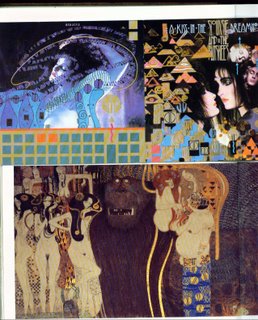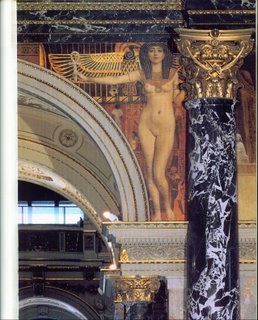Where are Class War when we need 'em now?
I have not made up this news article, honest.
Alistair
From Sunday Herald, 27 January 2007
Anger over Glasgow University chief’s pay rise
By Paul Hutcheon
£27,000 increase comes alongside redundancies and education cuts
THE PRINCIPAL of Glasgow University has been awarded a 15% pay rise in the same year he oversaw drastic Education Cuts and hundreds of redundancies.
Sir Muir Russell, the former permanent secretary of the Scottish Executive, has accepted a wage hike equivalent to five times the rate of inflation.
One Labour MSP described the improved financial package as "shocking" and called on the higher education institution to explain its decision.
The pay rise is controversial as it comes against a backdrop of university cuts. It was revealed earlier this month that Glasgow may pull out of Crichton Campus in Dumfries due to funding problems. Officials are considering options ranging from reducing its activities in the south of Scotland, to full-scale withdrawal.
This follows last year's row over the university's cost-cutting exercise to hit a £10 million efficiency drive.
Several departments tightened their belts by making substantial savings, while around 230 staff accepted voluntary redundancy. At the time, Russell explained the cuts by saying they were necessary for the university's long-term health.
He said: "These budgets involve savings because the university cannot continue to run an operating deficit as we have for the past 10 years and rely on borrowing and disposal of assets to fund our operations."
The Association of University Teachers (AUT) suggested Russell makea contribution to the cuts by taking a £40,000 wage cut. However, not only did the principal ignore this idea, but he instead accepted an inflation-busting salary increase.
The university's latest accounts show the level of Russell's remuneration package jumped from £184,000 in 2004/05 to £211,000 in the last financial year - a 15% rise.
His "salary and benefits" increased during the same period by 11% from £170,000 to £189,000, while his pension contributions rose from £14,000 to £22,000.
It is not the first time Russell has benefited from a generous deal from the taxpayer. The 58-year-old former civil servant, who led the Scottish Executive during the calamity of the Holyrood project, will pocket a one-off payment of £215,000 when he turns 60. He can also expect an annual pension of £65,000 waiting for him at 65,on account of his years spent in the civil service.
Dumfries MSP Elaine Murray blasted Russell for his pay rise. She said: "People will be horrified by this, particularly in Dumfries. He is urging everyone else to make cuts while agreeing a big pay rise for himself. It is shocking."
Dr Bill Stewart, the vice-president of the Universities and Colleges Union at Glasgow University, said: "As a group, the senior officials award themselves pay rises that are always higher than the rate of inflation. It's an issue we've campaigned on for a number of years, and it's particularly relevant at times like these."
A spokesperson for Glasgow University defended the pay rise: "The salary of the university's principal is performance- related and reflects the responsibilities of running a large and complex organisation. The increase reflects the considerable success which the university has enjoyed in the past year. We are out of deficit for the first time in 12 years, having a £2m surplus to invest in our areas of excellence, and climbed 20 places in the world league tables to 81, one of only two Scottish universities in the top 100."


















